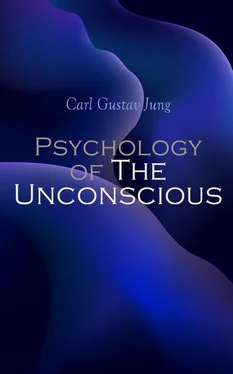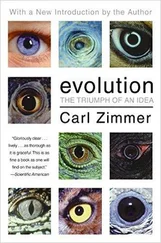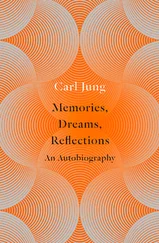Carl Jung - Psychology of The Unconscious
Здесь есть возможность читать онлайн «Carl Jung - Psychology of The Unconscious» — ознакомительный отрывок электронной книги совершенно бесплатно, а после прочтения отрывка купить полную версию. В некоторых случаях можно слушать аудио, скачать через торрент в формате fb2 и присутствует краткое содержание. Жанр: unrecognised, на английском языке. Описание произведения, (предисловие) а так же отзывы посетителей доступны на портале библиотеки ЛибКат.
- Название:Psychology of The Unconscious
- Автор:
- Жанр:
- Год:неизвестен
- ISBN:нет данных
- Рейтинг книги:4 / 5. Голосов: 1
-
Избранное:Добавить в избранное
- Отзывы:
-
Ваша оценка:
- 80
- 1
- 2
- 3
- 4
- 5
Psychology of The Unconscious: краткое содержание, описание и аннотация
Предлагаем к чтению аннотацию, описание, краткое содержание или предисловие (зависит от того, что написал сам автор книги «Psychology of The Unconscious»). Если вы не нашли необходимую информацию о книге — напишите в комментариях, мы постараемся отыскать её.
Psychology of The Unconscious — читать онлайн ознакомительный отрывок
Ниже представлен текст книги, разбитый по страницам. Система сохранения места последней прочитанной страницы, позволяет с удобством читать онлайн бесплатно книгу «Psychology of The Unconscious», без необходимости каждый раз заново искать на чём Вы остановились. Поставьте закладку, и сможете в любой момент перейти на страницу, на которой закончили чтение.
Интервал:
Закладка:
The symbolism of the instrument of coitus was an inexhaustible material for ancient phantasy. It furnished a widespread cult that was designated phallic, the object of reverence of which was the phallus. The companion of Dionysus was Phales, a personification of the phallus proceeding from the phallic Herme of Dionysus. The phallic symbols were countless. Among the Sabines, the custom existed for the bridegroom to part the bride’s hair with a lance. The bird, the fish and the snake were phallic symbols. In addition, there existed in enormous quantities theriomorphic representations of the sexual instinct, in connection with which the bull, the he-goat, the ram, the boar and the ass were frequently used. An undercurrent to this choice of symbol was furnished by the sodomitic inclination of humanity. When in the dream phantasy of modern man, the feared man is replaced by an animal, there is recurring in the ontogenetic re-echo the same thing which was openly represented by the ancients countless times. There were he-goats which pursued nymphs, satyrs with she-goats; in still older times in Egypt there even existed a shrine of a goat god, which the Greeks called Pan, where the Hierodules prostituted themselves with goats. [46]It is well known that this worship has not died out, but continues to live as a special custom in South Italy and Greece. [47]
To-day we feel for such a thing nothing but the deepest abhorrence, and never would admit it still slumbered in our souls. Nevertheless, just as truly as the idea of the sexual assault is there, so are these things there too; which we should contemplate still more closely,—not through moral eye-glasses, with horror, but with interest as a natural science, since these things are venerable relics of past culture periods. We have, even to-day, a clause in our penal code against sodomy. But that which was once so strong as to give rise to a worship among a highly developed people has probably not wholly disappeared from the human soul during the course of a few generations. We may not forget that since the symposium of Plato, in which homo-sexuality faces us on the same level with the so-called “normal sexuality,” only eighty generations have passed. And what are eighty generations? They shrink to an imperceptible period of time when compared with the space of time which separates us from the homo-Neandertalensis or Heidelbergensis. I might call to mind, in this connection, some choice thoughts of the great historian Guglielmo Ferrero: [48]
“It is a very common belief that the further man is separated from the present by time, the more does he differ from us in his thoughts and feelings; that the psychology of humanity changes from century to century, like fashions of literature. Therefore, no sooner do we find in past history an institution, a custom, a law or a belief a little different from those with which we are familiar, than we immediately search for some complex meanings, which frequently resolve themselves into phrases of doubtful significance.
“Indeed, man does not change so quickly; his psychology at bottom remains the same, and even if his culture varies much from one epoch to another, it does not change the functioning of his mind. The fundamental laws of the mind remain the same, at least during the short historical period of which we have knowledge, and all phenomena, even the most strange, must be capable of explanation by those common laws of the mind which we can recognize in ourselves.”
The psychologist should accept this viewpoint without reservation as peculiarly applicable to himself. To-day, indeed, in our civilization the phallic processions, the Dionysian mysteries of classical Athens, the barefaced Phallic emblems, have disappeared from our coins, houses, temples and streets; so also have the theriomorphic representations of the Deity been reduced to small remnants, like the Dove of the Holy Ghost, the Lamb of God and the Cock of Peter adorning our church towers. In the same way, the capture and violation of women have shrunken away to crimes. Yet all of this does not affect the fact that we, in childhood, go through a period in which the impulses toward these archaic inclinations appear again and again, and that through all our life we possess, side by side with the newly recruited, directed and adapted thought, a phantastic thought which corresponds to the thought of the centuries of antiquity and barbarism. Just as our bodies still keep the reminders of old functions and conditions in many old-fashioned organs, so our minds, too, which apparently have outgrown those archaic tendencies, nevertheless bear the marks of the evolution passed through, and the very ancient re-echoes, at least dreamily, in phantasies.
The symbolism which Freud has discovered, is revealed as an expression of a thinking and of an impulse limited to the dream, to wrong conduct, and to derangements of the mind, which form of thinking and impulse at one time ruled as the mightiest influence in past culture epochs.
The question of whence comes the inclination and ability which enables the mind to express itself symbolically, brings us to the distinction between the two kinds of thinking—the directed and adapted on one hand, and the subjective, fed by our own egotistic wishes, on the other. The latter form of thinking, presupposing that it were not constantly corrected by the adapted thinking, must necessarily produce an overwhelmingly subjectively distorted idea of the world. We regard this state of mind as infantile. It lies in our individual past, and in the past of mankind.
With this we affirm the important fact that man in his phantastic thinking has kept a condensation of the psychic history of his development. An extraordinarily important task, which even to-day is hardly possible, is to give a systematic description of phantastic thinking. One may, at the most, sketch it. While directed thinking is a phenomenon conscious throughout, [49]the same cannot be asserted of phantastic thinking. Doubtless, a great part of it still falls entirely in the realm of the conscious, but, at least, just as much goes along in half shadows, and generally an undetermined amount in the unconscious; and this can, therefore, be disclosed only indirectly. [50]By means of phantastic thinking, directed thinking is connected with the oldest foundations of the human mind, which have been for a long time beneath the threshold of the consciousness. The products of this phantastic thinking arising directly from the consciousness are, first, waking dreams, or day-dreams, to which Freud, Flournoy, Pick and others have given special attention; then the dreams which offer to the consciousness, at first, a mysterious exterior, and win meaning only through the indirectly inferred unconscious contents. Lastly, there is a so-called wholly unconscious phantasy system in the split-off complex, which exhibits a pronounced tendency towards the production of a dissociated personality. [51]
Our foregoing explanations show wherein the products arising from the unconscious are related to the mythical. From all these signs it may be concluded that the soul possesses in some degree historical strata, the oldest stratum of which would correspond to the unconscious. The result of that must be that an introversion occurring in later life, according to the Freudian teaching, seizes upon regressive infantile reminiscences taken from the individual past. That first points out the way; then, with stronger introversion and regression (strong repressions, introversion psychoses), there come to light pronounced traits of an archaic mental kind which, under certain circumstances, might go as far as the re-echo of a once manifest, archaic mental product.
This problem deserves to be more thoroughly discussed. As a concrete example, let us take the history of the pious Abbé Oegger which Anatole France has communicated to us. [52]This priest was a hypercritical man, and much given to phantasies, especially in regard to one question, viz., the fate of Judas; whether he was really damned, as the teaching of the church asserts, to everlasting punishment, or whether God had pardoned him after all. Oegger sided with the intelligent point of view that God, in his all-wisdom, had chosen Judas as an instrument, in order to bring about the highest point of the work of redemption by Christ. [53]This necessary instrument, without the help of which the human race would not have been a sharer in salvation, could not possibly be damned by the all-good God. In order to put an end to his doubts, Oegger went one night to the church, and made supplication for a sign that Judas was saved. Then he felt a heavenly touch upon his shoulder. Following this, Oegger told the Archbishop of his resolution to go out into the world to preach God’s unending mercy.
Читать дальшеИнтервал:
Закладка:
Похожие книги на «Psychology of The Unconscious»
Представляем Вашему вниманию похожие книги на «Psychology of The Unconscious» списком для выбора. Мы отобрали схожую по названию и смыслу литературу в надежде предоставить читателям больше вариантов отыскать новые, интересные, ещё непрочитанные произведения.
Обсуждение, отзывы о книге «Psychology of The Unconscious» и просто собственные мнения читателей. Оставьте ваши комментарии, напишите, что Вы думаете о произведении, его смысле или главных героях. Укажите что конкретно понравилось, а что нет, и почему Вы так считаете.












